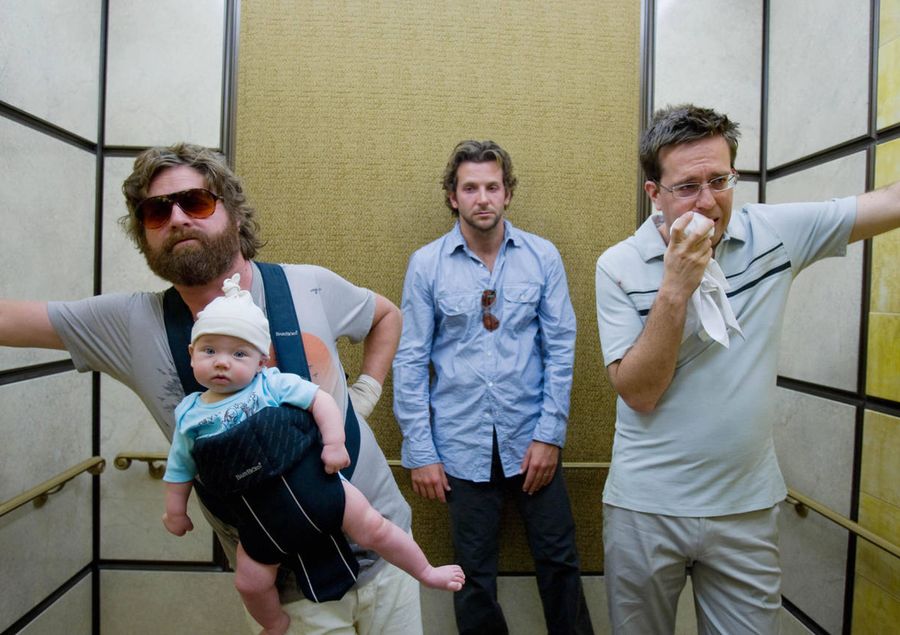Cast your mind back to the joys of 2009, in a time before the terrors of the Coronavirus, when Barack Obama was still in office and the turn of the new millennium was a resonant memory that still reverberated around popular culture. This new 21st-century identity embraced excess and technological advancement, two things that Todd Phillips adopted for his blockbuster comedy The Hangover, in which four friends, lethargic with the pace of everyday life, go on a stag-do to Las Vegas.
The film caught the attention of a particular western zeitgeist and became a significant box office and cultural success, with the three lead characters, Alan (Zach Galifianakis), Phil (Bradley Cooper) and Stu (Ed Helms), becoming iconic characters in their own right. Capturing a particular puerile comedy that had come to define the Western culture at the dawn of the internet age, The Hangover is largely remembered for the character of Alan, an eccentric, immature caricature that would help to launch the career of Zach Galifianakis.
Earning two sequels released in 2011 and 2013 respectively, The Hangover became an undeniably successful comedy franchise, helping to draw in a largely male audience eager for frat-boy comedy across the globe. Such comedies rehashed the premise of the original film, wherein three men awake from a drunken night unable to find their missing friend, with both sequels proving to be so critically unsuccessful that they slammed the door shut on the potential future of the franchise.
Not just this, however, but the film and its following sequels seemed to bring an end to the concept of the comedy blockbuster almost entirely, with such films almost entirely absent from modern cinema. In the previous five years, notable exceptions to this have been, The Disaster Artist, Game Night, Blockers, Long Shot and Booksmart, though none of these films has even been close to attaining the same success as The Hangover.
Of course, The Hangover is also not the only blockbuster comedy to have proven successful, with Phil Lord and Chris Miller’s 21 and 22 Jump Street films proving highly popular with audiences, though with the demise of The Hangover series in 2013 came coincidently the quiet death of the blockbuster comedy. It’s hard to pinpoint the particular reason for such a collapse as, at the time of the original film’s release in 2007, comedies were thriving. Judd Apatow had created a niche for such comedies, championing the genre by producing The 40 Year-Old Virgin, Knocked Up, Superbad and Pineapple Express, though this oil well soon too dried up.
In an increasingly emotionally conscious Western social environment, such frat-boy comedies would simply be too much of a risk to take on for production companies, with The Hangover particularly displaying a brash sense of humour that mocks minorities throughout. Though such films don’t have to abide by such a puerile sense of humour, to make a modern-day Hangover, the sheer fabric of the film would have to be changed and adapted to make it more palatable for modern tastes and attitudes.
Whilst this may certainly be a factor that has helped lead the blockbuster comedy to a mere figment of imagination, the landscape of early 21st-century comedy was also a rather simplistic one. Without the vast landscape of comedy that we currently enjoy today, audiences were restricted to the loudest voice in the room to whet the appetites of a whole population. Now, the sheer choice at our fingertips means that each and every taste can be accounted for, and, as a result, the whole notion of frat-boy humour has somewhat fallen by the wayside. The blockbuster comedy now seems like a strange reminder of attitudes long lost.
Watching The Hangover now feels like a regretful, intoxicating ride through the regrets of noughties popular comedy.
